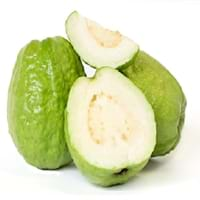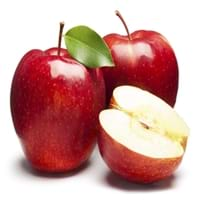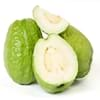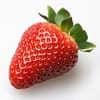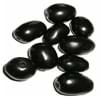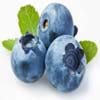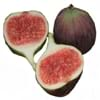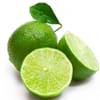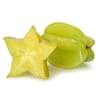Health Benefits
Cancer prevention, Diarrhea treatment, Prevents constipation, Scurvy treatment, Treatment of dysentary
Cancer prevention, Supports healthy Liver function, Diarrhea treatment, Heart care, Increases metabolic rate, Neutralizes irritable bowel syndrome, Helps Prevent cataract, Prevents constipation, Prevents gall stones, Prevents high blood pressure, Helps prevent Parkinson's disease, Reduces risk of asthma, Treatment of alzheimer's disease
General Benefits
Controls blood pressure, Cures cough, Improves eye vision, Maintains healthy cholesterol level, Treatment of common cold
Boosts immune system, Helps in weight loss, Maintains healthy cholesterol level, Whitens teeth
Skin Benefits
Anti-aging benefits, Brightens and lightens complexion, Hydrates skin, Treatment of skin diseases
Anti-aging benefits, Brightens and lightens complexion, Hydrates skin, Treatment of acne, Treatment of dark spots, Treatment of puffy eyes
Hair Benefits
Prevents hair loss
Prevents hair loss, Promotes longer and healthier hair, Regulates hair growth, Treatment of dandruff
Allergy Symptoms
Breathing difficulty, Coughing, Runny nose, Sneezing, Swelling of mouth, tongue or lips, Wheezing
Abdominal pains, Itching, Swelling of mouth, tongue or lips, Vomiting
Side Effects
Hair thinning, Nail thinning, Skin problems, Tooth decay, Weakness, Possibly unsafe during pregnancy
Allergic reaction, May consist of poisonous seeds
Best Time to Eat
As a snack in the late afternoon, Don't consume at night and before bed, Eat the fresh ones, avoid mixing with any other foods, don't eat after meal., Morning time (before lunch)
Any time except an hour after meal, Best if taken as a breakfast (or empty stomach), Don't consume at night and before bed
Vitamin B5 (Pantothenic Acid)
Vitamin C (Ascorbic Acid)
Vitamin K (Phyllochinone)
Phytosterol
Not Available
Calories in Fresh Fruit with Peel
Calories in Fresh Fruit without Peel
Not Available
Calories in Frozen Form
Not Available
Type
Tree fruit, Tropical
Tree fruit
Season
All seasons
All seasons
Varieties
Lucknow 49, Allahabad Safeda, Chittidar, Harijha, Apple guava, Hafshi, Arka Mridula and Allahabad Surkha
Red Delicious, Golden Delicious, Gala, Fuji, Granny Smith, Arkansas Black, Sampion, Pink Lady, Cameo, Jonagold, Mc Intosh, Ananasrenette, Lobo, Pacific Rose, Yellow transparent and Bramley
Color
Green, Pink, Yellow
Green, Red, Yellow
Taste
Sweet-Sour
Sweet, Sweet-Sour
Origin
Central America, Mexico, South America
Central Asia, Middle East Asia
Soil Type
Loam, Rocky, Sandy
Loam
Climatic Conditions
Sunny
Cold
Facts about
- The black pigment in Guava leaves is used for textile applications.
- Guava leaves are used to make tea.
- Oils extracted from guava seeds are used in various cosmetics.
- Guava wood is used for decorative purposes.
- Apples can be as small as a pea and as big as a pumpkin.
- There are more than 8000 varieties of apples.
- Life of an Apple tree can be more than 100 years.
- Apples contain 25% air, therefore they float in water.
Other Countries
China, Indonesia, Mexico, Nigeria, Pakistan, Philippines, Thailand
Chile, France, India, Iran, Italy, Poland, Russia, Turkey, United States of America
Top Importer
Canada
Russia
Botanical Name
Psidium guajava
Malus Domestica
Synonym
Not Available
Malus Communis or Malus Pumila or Pyrus Malus
Subkingdom
Tracheobionta
Tracheobionta
Division
Magnoliophyta
Magnoliophyta
Class
Magnoliopsida
Magnoliopsida
Family
Myrtaceae
Rosaceae
Species
Psidium guajava
M. domestica
Generic Group
Myrtle
Rose
Compare Guava and Apple
It is important compare Guava and Apple as both the fruits have a different nutritional value. Their comparison can be done on the basis of their vitamin and mineral content, calories, benefits as well as characteristics, making it easier for us to choose the best fruit for our diet. Their general health benefits are as follows:
Guava Benefits: controls blood pressure, cures cough, improves eye vision, maintains healthy cholesterol level and treatment of common cold.
Apple Benefits: boosts immune system, helps in weight loss, maintains healthy cholesterol level and whitens teeth.
Fruits are also used as a remedy for various hair problems. The hair benefits of Guava are: prevents hair loss and hair benefits of Apple are: prevents hair loss, promotes longer and healthier hair, regulates hair growth and treatment of dandruff. Some fruits are known to cause allergic reactions. The allergy symptoms of first fruit are: breathing difficulty, coughing, runny nose, sneezing, swelling of mouth tongue or lips and wheezing and the symptoms of second fruit are: abdominal pains, itching, swelling of mouth tongue or lips and vomiting. Get sorted Guava vs Apple comparison with the help of fruit comparison tool by fruitvs.com.
